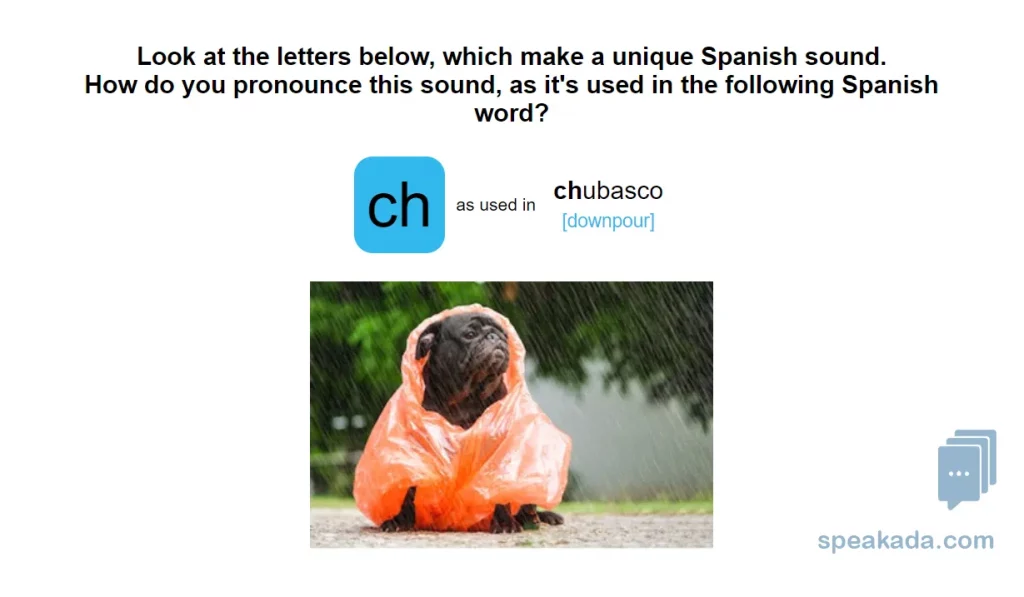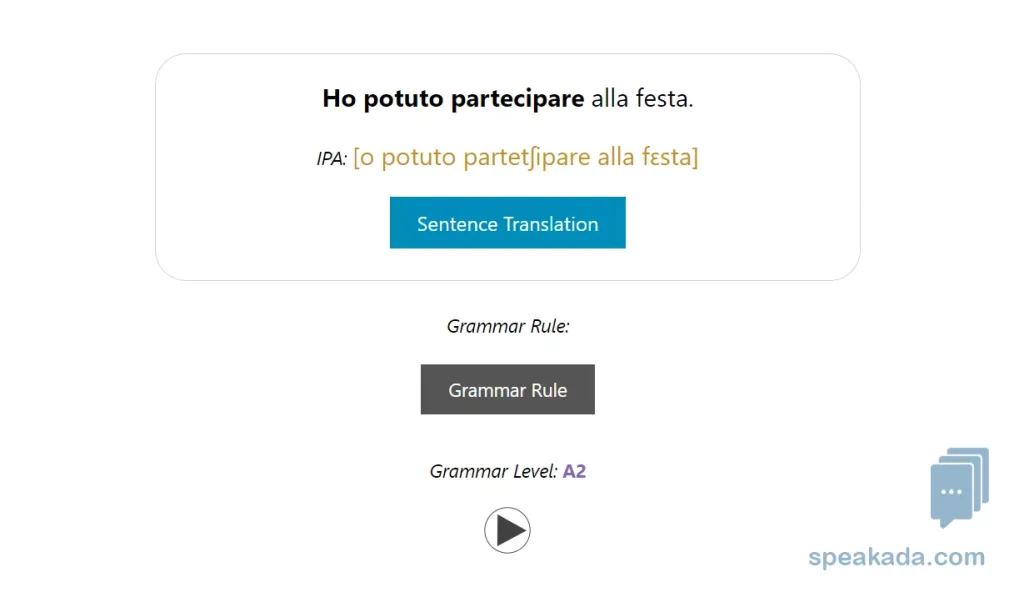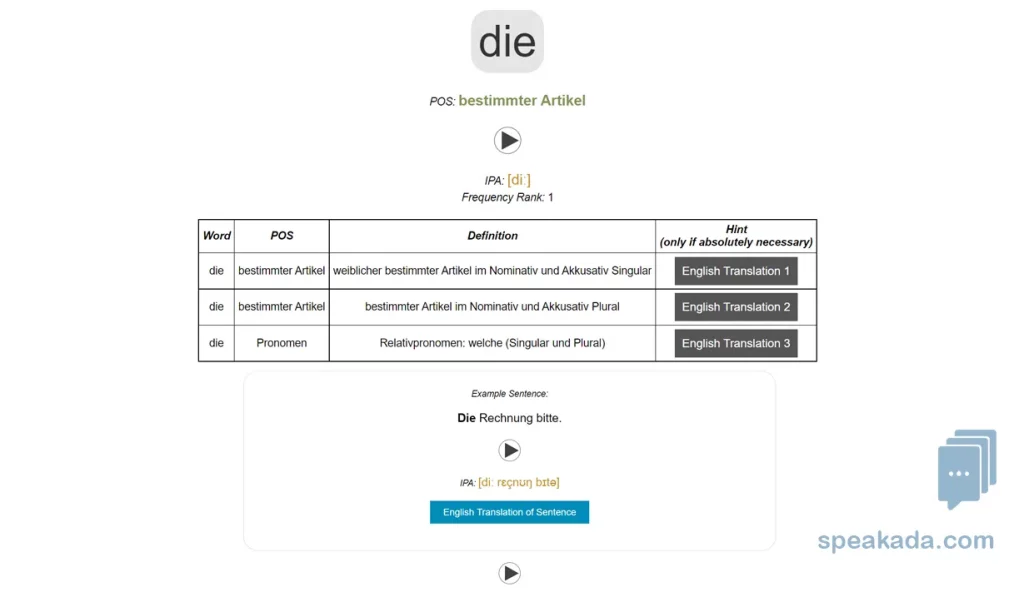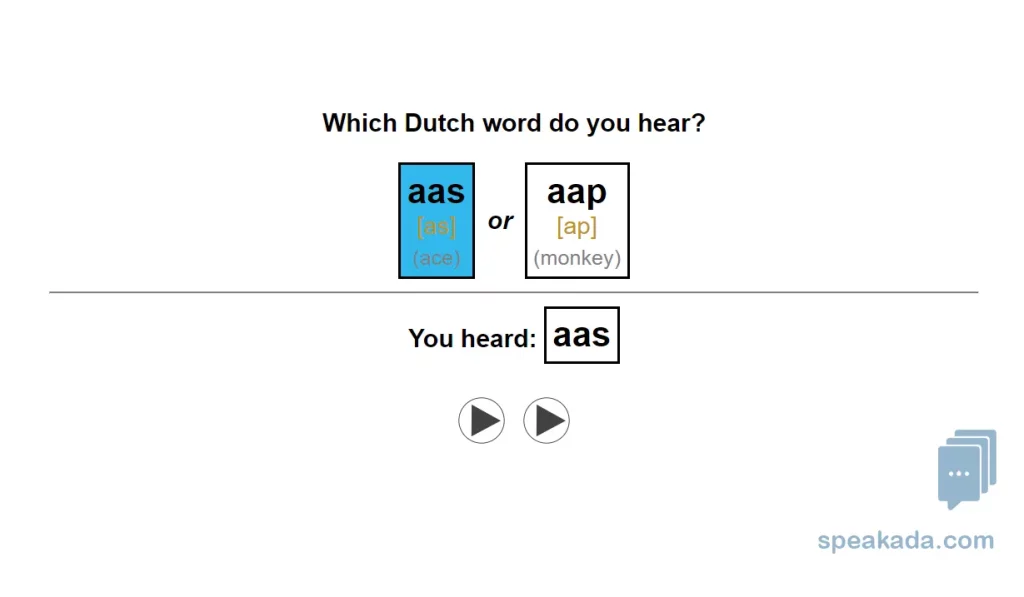Hi! We’re Speakada. We help language learners get fluent faster through effective Anki language learning flashcards.
About Speakada
Speakada was created as to make the process of learning a second language faster and more effective. From our own experience and based on scientific research, we’ve developed Anki language learning flashcards that tackle the basics and foundations of a foreign language.
For those who are curious, the name “Speakada” comes from our mission to help you SPEAK a foreign language with Anki Decks and Advice. The name also takes a playful nod to those moments when we’ve all struggled to “speakada” fluently in another language.
Now, having crafted thousands of flashcards for over 8 languages, our journey continues.
Driven by a passion for languages and effective flashcard creation, we share our decks and our lessons to help fellow learners achieve fluency faster.
THE METHOD TO LEARN THE CORE LANGUAGE
Learning the core of a language is done through 3 sets of flashcards that target the basics of the language; pronunciation, common vocabulary, and grammar rules. Anki flashcards are used to help you grasp these fundamental aspects, which you can study independently.
Learn in 3 steps with our flashcards and get to B2 level fluency:
THE 5 PARTS OF CORE LANGUAGE
The 5 principles below support your language learning journey. These 5 parts are especially important, so you can get fluent faster:
1) Pronunciation: The Value of Sounds

Learning pronunciation is important so that you can understand native speakers, and they can understand you better.
Mastering pronunciation early on in the learning process is important to avoid developing bad habits that are difficult to correct later.
2) Vocabulary: The Value of Words

Learn vocabulary by word frequency because it is better than learning random words. Vocabulary size of common words is correlated with language level and fluency. When you master more common words in a language, then the more fluent you become.
3) Grammar: The Value of Meaningful Sentences

Learn the most frequently used grammar with Spaced Repetition so you memorize 1 or 2 examples of every new grammatical form quickly. This lets you learn the main grammar points of a language very fast, without getting bogged down with boring grammatical drills in your textbook.
4) Spaced Repetition & Effective Anki Flashcards

Anki & Spaced repetition makes us superhuman by overcoming the forgetting curve. We advocate for the use of SRS, a learning technique that optimizes the timing and frequency of reviewing information to maximize long-term retention.
Anki is better than all other offline and online flashcard systems to learn a language because of research, case studies, community, longevity, flexibility, functionality.
5) Practical Self-Study Language Learning

You can take control of your language learning & make big gains through self-study because you have more time outside of classes, and it is internally motivated.
We suggest a structured, practical approach to independent language learning, so you can set goals and build habits. Our Speakada Method takes you step-by-step from absolute beginner to fluency, rather than vague ideas or random tidbits.
THE SCIENCE
Scientific Research Showing Effectiveness of Anki Language Learning
There are a number of scientific studies that have informed our thinking and way of doing things. Here are just a few of them that show you why we strongly believe that effective flashcards can help you become fluent faster.
1) Spanish Success: Anki’s Influence on Language Fluency
“Participants were students enrolled in a beginning Spanish course who were assigned to study with Anki as a class requirement. The results showed a positive relationship between days studying with Anki and Spanish performance at the end of the semester even while controlling for baseline abilities and for motivation, self-efficacy, and beliefs.”
2) TOEIC Triumph: Mastering Test Vocabulary with Spaced Repetition
“This study addresses the gap in the research by analyzing the relationship between extended study of a Test of English for International Communication (TOEIC) word list using spaced repetition software (SRS) and TOEIC score gains… Statistically significant relationships (p < .05) were found between total SRS repetitions and TOEIC listening and overall score gains… The authors argue that study of test-specific word lists with SRS may be a useful addition to motivated students’ test preparation strategies for standardized foreign language proficiency tests.”
3) ESL Excellence: Anki’s Support in Academic Vocabulary
“The vocabulary levels test results showed that the process of learning academic vocabulary with Anki helped college-level ESL students to improve their academic vocabulary… Explicit vocabulary learning helps learners to gain greater amount of vocabulary in a short period of time in addition to a better chance of retention. Learners practiced about two hundred academic words in three weeks and their scores increased significantly.”
4) Flashcards and Language Learning: Insights from Pedagogical Research
“Research was carried out in the form of a pedagogical experiment in which the experimental group used the Anki mobile application…It found that there is a positive relationship between the number of achieved points and the number of studied cards. The results show that pupils who study a greater number of Anki cards will achieve a higher overall score in language tests.”
How We Use Scientific Research to Make Flashcards and Content
We carefully create language flashcards and content using a detailed process. Our goal is to make our flashcards and content clear, practical, and based on solid science. We base our flashcards on scientific research from universities, linguists and Anki experts including:
Here’s how it works:
Step 1: Scientific Research
Our research team continually monitors emerging trends in linguistics, language learning technology, memory and neuroscience, foreign language teaching guidelines and successful language learner recommendations.
The research team then provides our product development team and editorial team with fresh, up-to-date research on a wide variety of topics.

Step 2: Product & Content Creation
Our product development team and editorial team then use the most current and evidence-based scientific understandings of the matters being discussed.
The product development team uses scientific research to help make language learning content and designing flashcards. The editorial team also uses research in drafting articles and outlines for web content and videos.

Step 3: Scientific Review
Our research team, along with input from the Speakada community, reviews the Anki decks and content to ensure all key information and claims are backed by high-quality scientific research where applicable, and explained simply and precisely.

SUBSCRIBE TO BEGIN
Join 2,000+ readers of Speakada Weekly for exclusive tips, strategies, and resources to get fluent faster in a foreign language through effective tools & research-based Anki flashcards.













